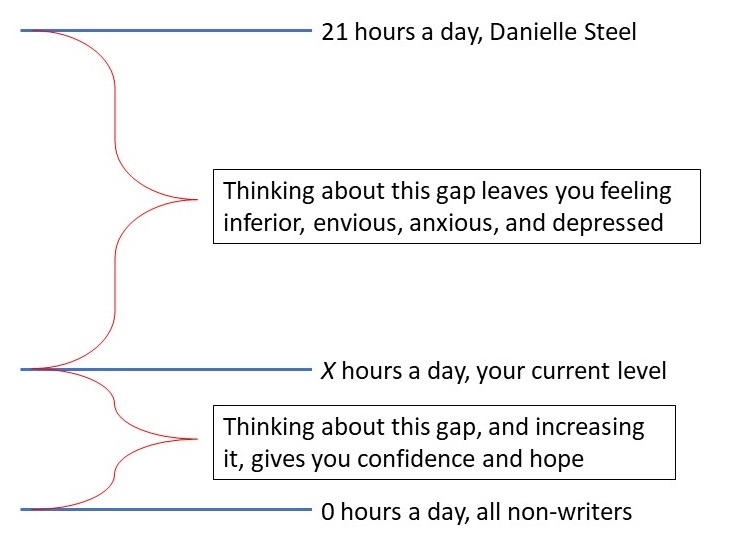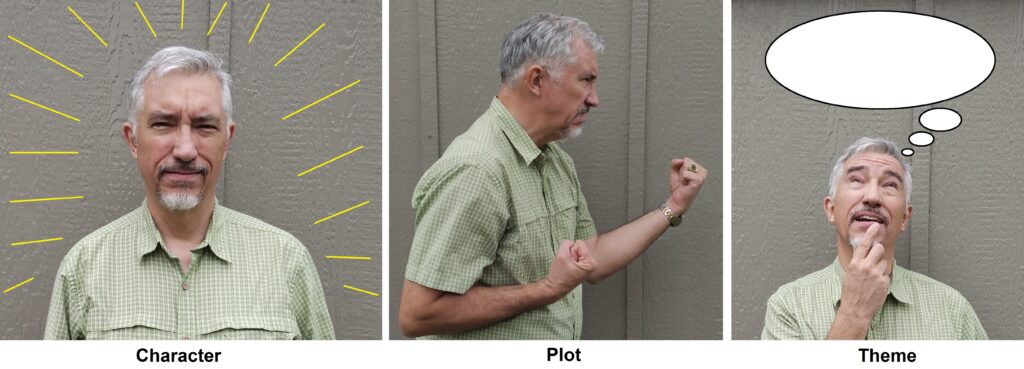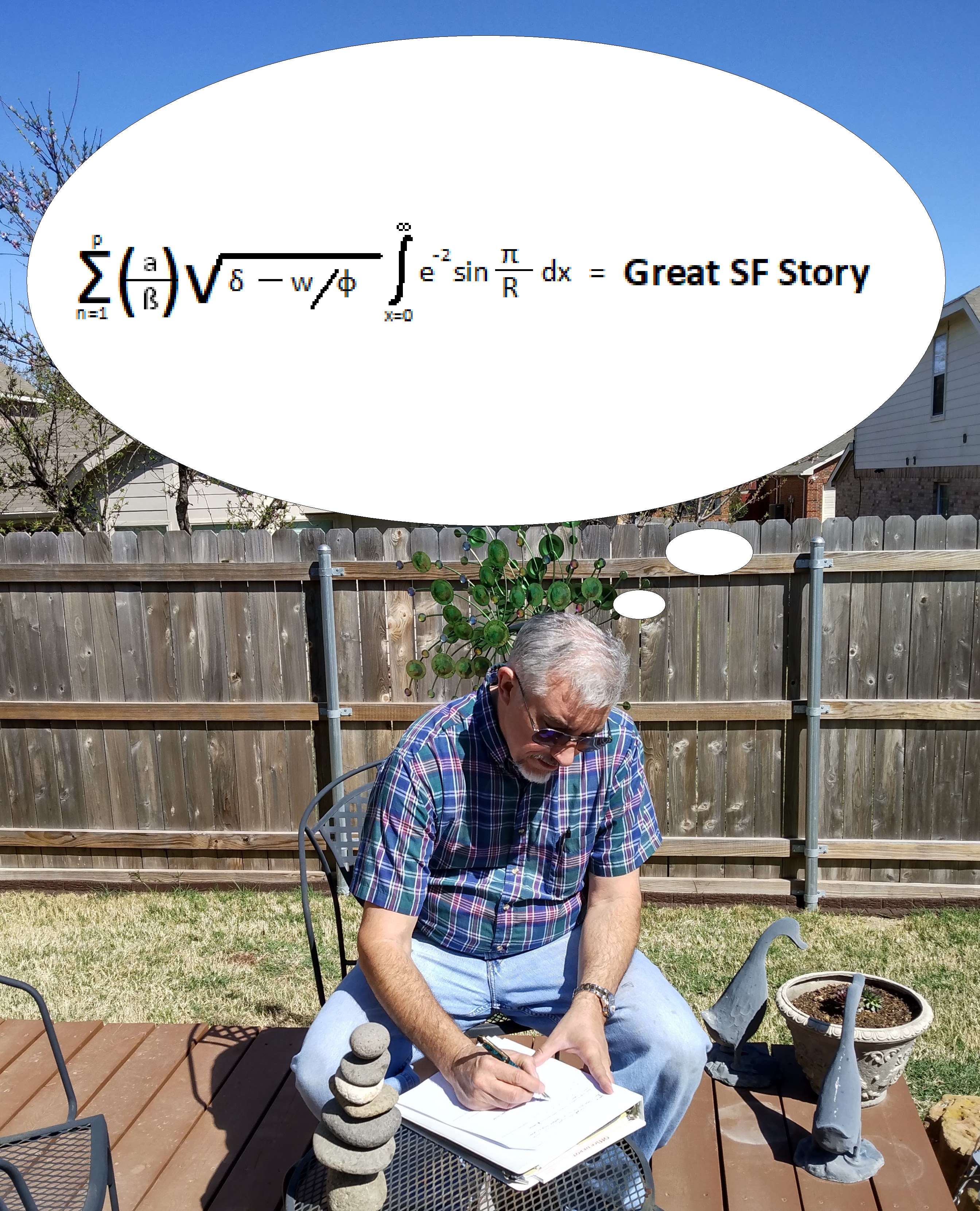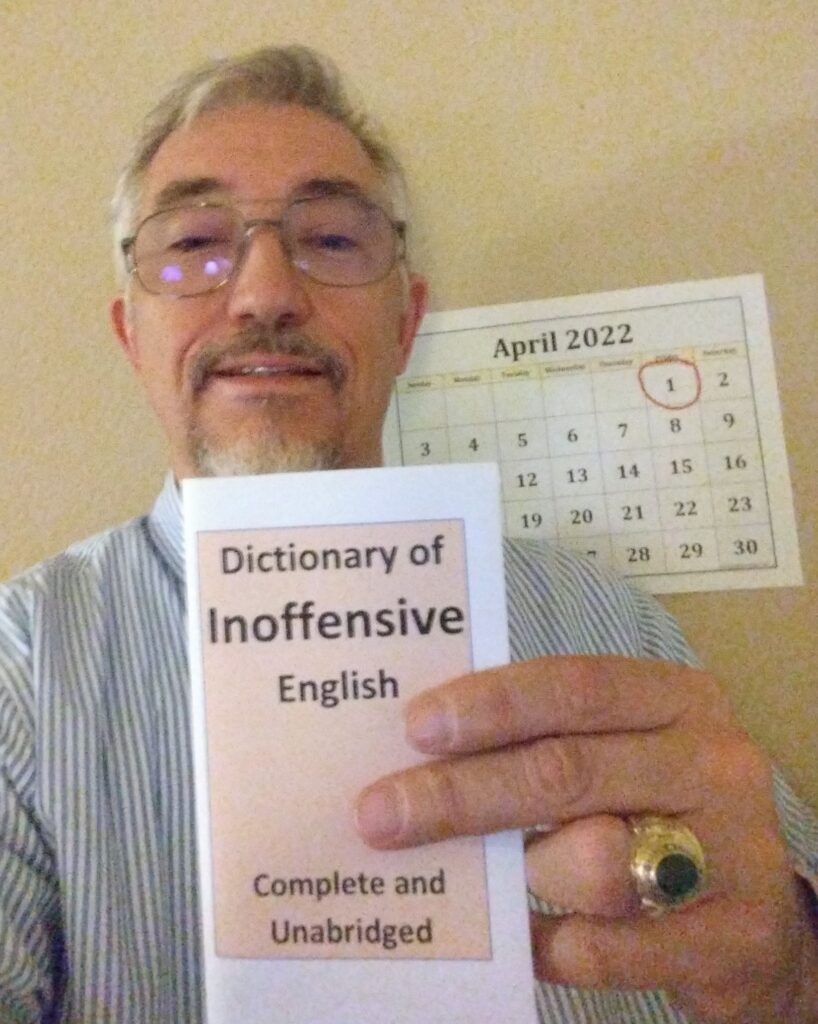In the London subway system, iconic signs exhort patrons to step with care across the space between platform and train with the words “Mind the Gap.” Not bad advice for time management while writing, either.

Here I refer to a different kind of gap. Inspired by Andrew Gudgel’s post on June 3, 2019, which he based on Samantha Leach’s article in Glamour, I’m referring to a gap in writing productivity.
The blogpost and the article state that author Danielle Steel writes 20 to 22 hours a day. That’s not a typo. My math says Ms. Steel uses between 83% and 92% of all available time for writing. On occasion, she goes the full 100%. Put another way, in an average 8-hour period, Ms. Steel writes for 7 and squeezes the rest of her life activities into the remaining 1 hour.
I suspect very few other writers (perhaps none) maintain that schedule, so let’s consider that an upper limit of what is possible. Is Ms. Steel’s time well spent? Well, she’s the best-selling living author. She’s written over 141 novels, all of which were best-sellers. Yes, I’d say she’s used that time productively.
Right now, you’re mentally comparing your writing schedule to Danielle Steel’s and feeling rather inferior. You’re thinking you need more than 2-4 hours of sleep each day, and there’s also eating, showering, dressing, and undressing to consider.
That’s the gap I’m talking about—the writing schedule gap between you and Danielle Steel. If you keep thinking about that gap, you’ll get depressed.
Still, in a detached way, you can see how someone could get there. Say you enjoyed writing and wrote a debut novel that became a best-seller. You’d feel a strong incentive to write another. If that novel also succeeded, you’d be motivated to repeat that process. If nothing else in life gave you as much satisfaction as writing, and if all you got was positive feedback for doing so, you might end up writing for 20-22 hours a day, too.
To avoid comparison envy and anxiety, I encourage you to focus on a different gap. Forget about Danielle Steel. Think about how much you write every day, and compare it to where you were before becoming a writer. That’s the gap that matters. That’s a gap you can work on improving.

By instinct, I prefer metrics where more is better. The less=better metrics—golf scores, unemployment rates, the you-to-Danielle Steel work-hour gap—just feel wrong to me.
As the London subway signs say, “Mind the Gap,” but mind the right gap. Always here to provide uplifting advice and encouragement, I’m—
Poseidon’s Scribe




